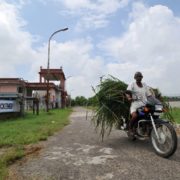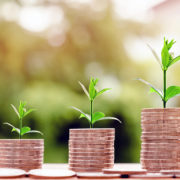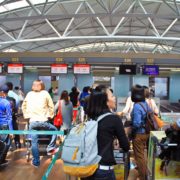Governance and public sector management, Information and Communications Technology
 Climate change, Environment, Water
Climate change, Environment, Water
 Governance and public sector management, Health, Sanitation, Social development and protection, Water
Governance and public sector management, Health, Sanitation, Social development and protection, Water
 Governance and public sector management, Health, Industry and trade
Governance and public sector management, Health, Industry and trade
 Climate change, Finance sector development
Climate change, Finance sector development
 Economics, Finance sector development
Economics, Finance sector development
 Agriculture and natural resources, Economics
Agriculture and natural resources, Economics
 Climate change, Finance sector development
Climate change, Finance sector development
 Agriculture and natural resources, Climate change
Agriculture and natural resources, Climate change
 Economics, Governance and public sector management, Health
Economics, Governance and public sector management, Health

Taxation and digitalization in the COVID-19 era

The coronavirus disease (COVID-19) pandemic has created challenges for tax administrations and is constraining tax revenue in many countries. Its impacts have caused the global economy to slow down, leading to reduced tax collection. However, the pandemic has also changed social habits and encouraged people to use digital technologies.
Climate change impacts in Asia are all essentially a water story

Global climate change caused by human activities will continue to be catastrophic for humanity. In particular, climate change is having serious impacts on the world’s water systems (United Nations 2020), and changes in these systems can have an enormous impact on people’s lives. This is because water plays a critical role in the very existence of all forms of life on earth as the foundation of human well-being and prosperity (Asian Development Bank 2020) and a source of life and livelihoods.
Top journal articles on sanitation reveal new policy insights

An examination of the published journal articles on development economics reveals a striking pattern—very few are devoted to the analysis of sanitation interventions and development. In a recent systematic review of all sanitation-related articles from the top-12 highest-ranking journals on development economics (Revilla et al. 2021), we attempt to understand the linkages between sanitation and development based on current qualitative and quantitative empirical work.
Rethinking the impact of the lockdown on micro, small, and medium-sized enterprises in the Philippines

The National Capital Region (NCR) and four provinces in the Philippines have returned to enhanced community quarantine (ECQ) since 29 March 2021 due to surging cases of the coronavirus disease (COVID-19). The ECQ is the strictest measure for prohibiting the movement of people for nonessential purposes and strengthening curfews. The Philippine government moved to the ECQ, or lockdown, to contain the spread of COVID-19 quickly after the pandemic was identified in March 2020.
ESG investment for promoting net-zero carbon emissions

ESG investment aims to encourage companies to consider environment (E), social (S), and corporate governance (G) issues by raising their long-term corporate value. It is becoming indispensable for filling the funding shortfalls needed to achieve the Paris Agreement’s goal of limiting the global temperature increase this century to well below 2 degrees Celsius above preindustrial levels, and desirably within 1.5 degrees Celsius, as well as to encourage the transformation of corporate behavior toward net-zero emissions.
Do persistent current account imbalances hamper regional and global growth?

Current account surpluses have persisted in a number of Asian and European economies throughout the global financial crisis and thereafter. Along with Germany, Japan has a decades-long history of recording current account surpluses. Due to rapid improvements in the competitiveness of its manufacturing sector, Japan has almost continuously recorded trade surpluses since the mid-1960s, and as a result, record current account surpluses (Shirakawa 2011).
Transitioning to high-value agriculture through cluster-based development

Income growth, urbanization, nutritional awareness, and supermarket revolutions in Asia are fueling demand for high-value agricultural products (HVPs), such as vegetables and fruits. This change in consumer demand can provide new agri-food market opportunities, which in turn can contribute to numerous Sustainable Development Goals through increased rural income, rural livelihood improvement, and rural poverty reduction.
Revisiting green bond market development in Viet Nam

Green bonds (GBs) are being used around the world as a financial tool for raising capital for projects that can benefit the environment (World Bank 2019). The money raised by GB issuances can fund investment in programs that enhance adaptation and mitigate the effects of climate change, such as projects for clean energy, public transport, and clean water. The GB concept was proposed by the World Bank in its Strategic Framework on Development and Climate Change in 2008 to help countries around the world raise capital for strategies for solving the problems of air pollution and global climate change (Trang 2015).
Autonomous adaptation: Community approaches to coping with climate change

Human activity is accelerating climate change, and those most at risk are vulnerable populations in developing countries that are already suffering from chronic poverty. These countries also tend to be ones that contribute only negligibly to climate change. The changing climate is waiting for no one—most of us have already experienced, read, or researched its impacts, and scientists have gravely warned of the consequences in the form of wildfires, droughts, floods, and landslides, among others.
Can closing borders shut out new COVID-19 strains?

In fighting the coronavirus disease (COVID-19) pandemic and, in particular, the new strains that are emerging, many countries have adopted the dual approach of closing borders and increasing domestic surveillance. This might be overkill. In fact, the latter might suffice.


Search
Subscribe / Connect to Asia Pathways
Subjects
- Agriculture and natural resources
- Blog
- Capacity development
- Climate change
- Economics
- Education
- Energy
- Environment
- Finance sector development
- Gender
- Governance and public sector management
- Health
- Industry and trade
- Information and Communications Technology
- Infrastructure
- Miscellaneous
- Population
- Poverty
- Private sector development
- Regional cooperation and integration
- Sanitation
- Social development and protection
- Transport
- Uncategorized
- Urban development
- Video Blog
- Water
Recent Posts
- Artificial intelligence: A new driver for inclusive growth and development?
- Increasing trust in cross-border e-commerce and artificial intelligence
- Enhancing access to maternal and newborn healthcare in developing Asia
- Can electric vehicles lead the way to a sustainable future?
- Mitigating climate-related sovereign risk to accelerate action on the climate emergency




Recent Comments